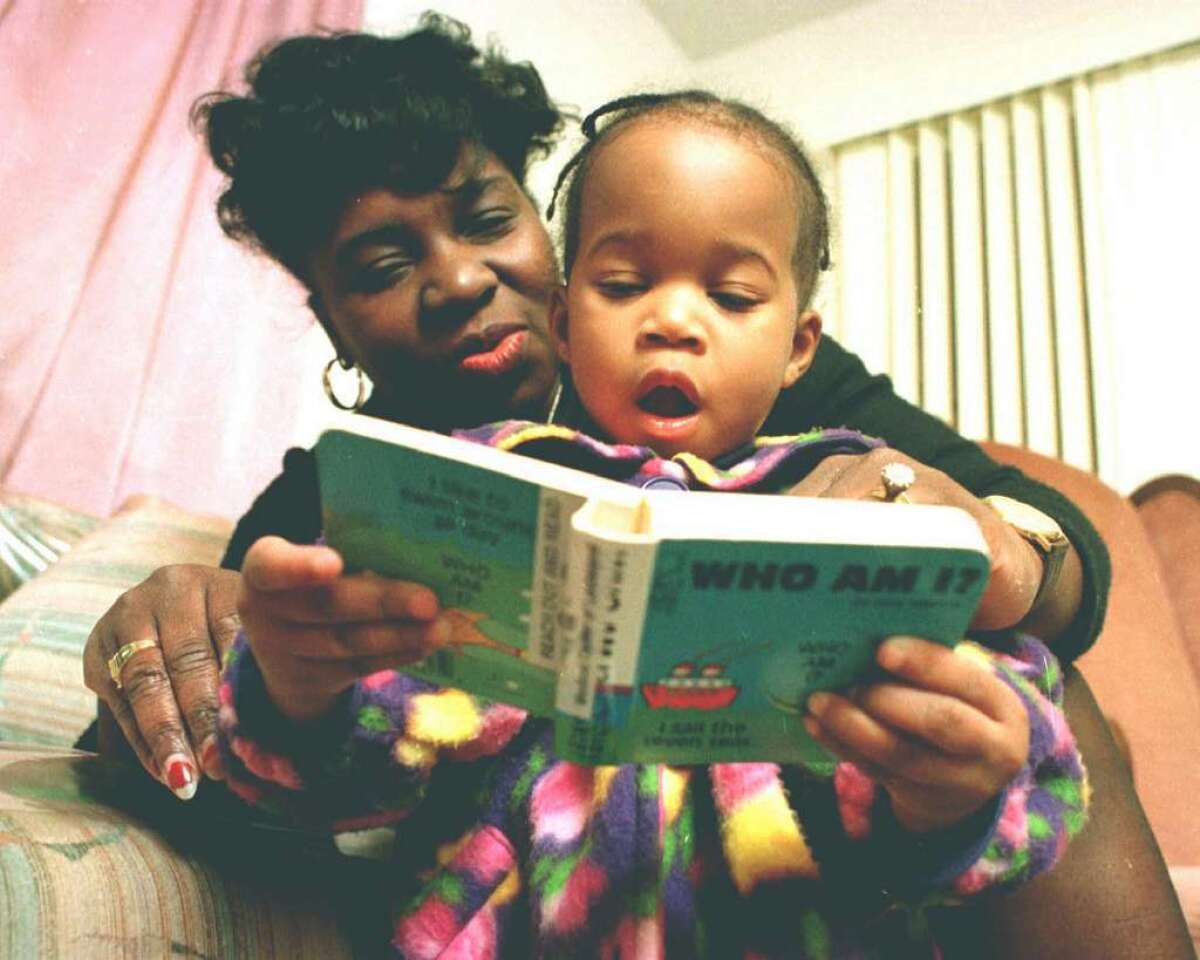Read to your kids? Of course!

Among the things Iâve learned as a columnist is that two people can read the exact same piece and glean entirely different meanings.
Thatâs what happened with last Saturdayâs column, which scoffed at a plan by the nationâs pediatricians to prescribe daily read-aloud sessions between parent and child, from infancy to kindergarten.
Iâm an idiot for suggesting that parents donât really need to bother reading to newborns â and a genius for suggesting that the routine chatter of an attentive parent can also be an essential learning tool.
âPaying attention to young children is probably the most important piece of how to promote literacy,â said an email from Genie Saffren, former head of the Fernald Child Study Center at UCLA.
âTelling parents that reading aloud is not as necessary as educators and doctors are suggesting is doing our community a terrible disservice,â wrote a âprofoundly upsetâ Lorrie Oshatz, the artistic director of a theater program aimed at promoting literacy.
I certainly didnât mean to imply that people shouldnât read to their kids, or that conversation is a worthy stand-in for literary experience.
Strong language skills are important to success in school and in life, and parents are their childrenâs first and most important teachers. I think we can all agree on that.
But it will take more than daily story sessions to bridge the long-standing academic gap between haves and have-nots.
We latch on to reading as the ultimate solution because itâs easier to pass out books than to talk about how the dynamics of family life influence school success.
Ojai reader Al Stroberg may have put it more clearly than my column did:
âReading is easily defined and accomplished,â Stroberg wrote. âTeaching parents how to talk civilly and with engagement with their kids sounds near impossible.â
::
I knew Iâd be stepping on toes with anything remotely considered an attack on the value of parents reading to kids. I heard from moms, grandparents, psychologists and lots of librarians and teachers, worried about forces that might undermine a surging campaign to promote a love of reading.
Several readers thought my column gave public libraries short shrift. Theyâve stepped into the breach as bookstores disappear, school libraries shrink and children gravitate to the uber stimulation of electronic gear.
âWeâre far better than doctors at recommending age-appropriate materials,â wrote Orange County librarian Roxanne Burg. âPlus you can go to any library you choose, even âout of network,â without penalty.â
But childrenâs librarian Paula Vannucci applauded the pediatriciansâ involvement. âThey may be trying to combat with this new âliteracy promotionâ the disheartening trend of parents ignoring their children in favor of whatever electronic device is in front of them,â she wrote.
âI see this daily â parents walking to the park with their child, but talking on the phone, not engaging their child and talking of the things around them.â
Some teachers complained that schools today focus too much on the mechanics of reading and too little on the pleasure it brings. âWhen I was a teacher,â wrote Michael Katzman, âI often read whole novels [aloud] to 17-year-olds.â
That shift is a product of a decade-long focus on strengthening young studentsâ basic skills by relying for reading instruction on scripted lessons and phonics drills. Some federal money for literacy programs has been diverted to math and science projects and bulked-up technology budgets.
Teachers noted that reading aloud can be particularly helpful for children just learning English â and the earlier the better, said school psychologist Carol Drainudel, who works in a San Fernando Valley community where students from rural Mexico speak dialects that bear little resemblance to either Spanish or English.
They need more than spelling tests and vocabulary drills; heavy doses of spoken English help tune their brains in ways that will make acquiring complex academic skills easier in the long run.
âAs for the reading assignment for parents,â Drainudel wrote, âeven watching decent TV would help (PBS vs. cartoon network).â
::
What I found most heartening in my inbox this week were the stories of volunteer efforts aimed at getting families and children jazzed up about reading.
There are grandparents reading to preschoolers in Los Angeles libraries. African American groups are enlisting celebrities to promote a âReaders Are Leadersâ campaign in urban neighborhoods. Volunteers from the Long Beach Memorial Womenâs Hospital League have been handing out books to new mothers â 30,000 so far â for 25 years.
And a pair of retired English teachers, who call themselves the Book Fairies, travels from Los Angeles to Fresno every spring to bring books to a kindergarten class at Winchell Elementary.
They met the Winchell kindergarten teacher at a wedding several years ago. She told them her students struggled with reading because they had no books at home. âThis horrified us,â said Dorris Lang, who taught for 38 years. âOur grandchildren have hundreds of books.â
So she and her friend began scouring thrift stores and library sales and collecting books from neighbors and friends. They mail several shipments of books each year and visit the school every May, wearing fairy wings.
âWe read them stories and answer questions about ourselves,â Lang wrote. âWe tell them they can be anything that they want to be, as long as they stay in school and work hard.â
They hoped the kindergartners would enlist older siblings to read the books to them. They didnât know their gifts would pay even bigger dividends: Those little kids with no books at home are now reading stories to their parents.
Twitter: @SandyBanksLAT
More to Read
Sign up for Essential California
The most important California stories and recommendations in your inbox every morning.
You may occasionally receive promotional content from the Los Angeles Times.











